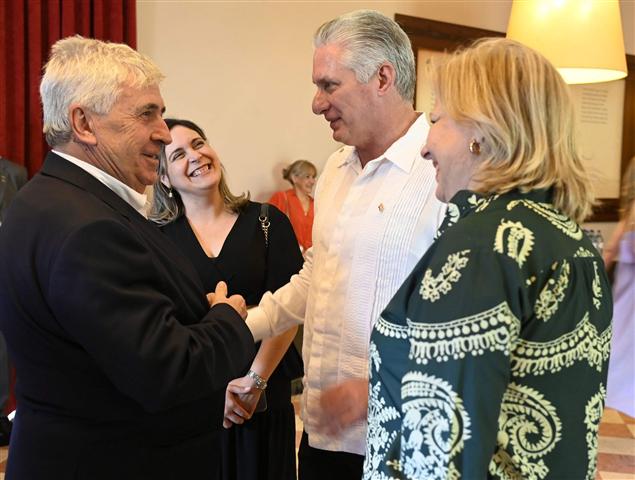Some of them valued the confidence they feel for Cuba, the personnel training process, its culture, its nature, as well as its history that has united both countries.
During the meeting, they discussed issues that slow down and bureaucratize processes, and also the effects of the U.S. blockade kept unchanged against Cuba for over 60 years.
They also agreed to give greater impetus to economic relations, something that Díaz-Canel’s visit to Lisbon marks a new starting point, according to the businessmen.
Earlier Saturday, the Cuban leader paid a visit to the Aljube Museum, a spot that documents the resistance of the Portuguese people against fascism.
On his second day, the Cuban president expressed his emotion at appreciating an exceptional place in the history of Portugal.
“Alongside the historic Domingos Abrantes and other comrades of the Portuguese Communist Party, we toured the Museum of Aljube-Resistance and Freedom, in the heart of Lisbon, an exceptional setting of tribute to those who confronted fascism and gave their lives for freedom,” Díaz-Canel live-tweeted.
pll/lam/ft









